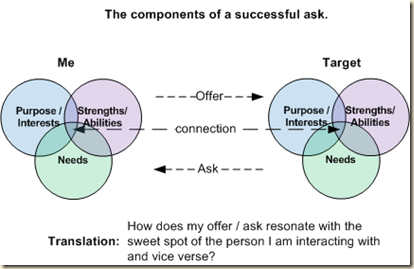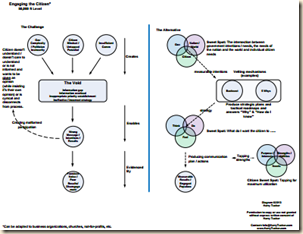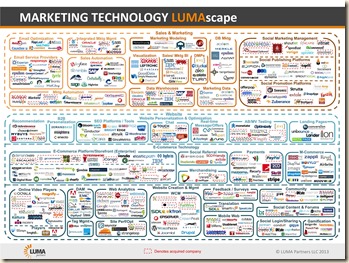* A musing continued from Living on the Edge – How Close Do You Dare (March 29, 2013), “Preventing A Disaster – Or Preparing To Survive One”, (November 29, 2012), "Divide and Conquer", (August 5, 2012), and “Financial Crisis” (March 11, 2008). There is significant benefit to reading those first (oldest to newest) but it is not required. *
------------
Four well-dressed men sat at one end of a very long boardroom table in a voluminous, softly illuminated boardroom, each studying the report before them.
One of them sat back and rubbed his eyes as the enormity of the report sank in. Looking up at the wall, he studied the Seal of the President of the United States of America and realized that he wasn’t dreaming.
He wished he was.
And yet he was being called upon to lead this group and produce a solution to what he saw as an unsolvable problem
His colleague to his left cleared his throat and spoke.
“Well, gentlemen, here is the dilemma as I see it. The event at Benghazi was unfortunate but the press was unable to let it go, creating all kinds of difficulty for us as they ferreted out details that we preferred to keep hidden. The Boston Marathon bombing was something we should have prevented but didn’t despite all the intel at our disposal. The EU continues its spiral into continued recession. The Fed has been artificially propping up the markets with the intention of showing consumers that there is confidence in the market but a few reporters have been exploring this too closely as well. Even our efforts to increase the Department of Homeland Security’s level of preparedness for a potential domestic event by purchasing significant quantities of armor-piercing rounds has not gone unnoticed by the press.
With all of this stuff going on and the press getting too close, we leaked a little info about the IRS sniffing around into people’s affairs. While we did this to distract the press, it has now backfired as the press has uncovered more wrong-doings on the part of the IRS than even we were aware of.
On top of that, we arrested 7 Pakistani and Saudi nationals with chemist-backgrounds after midnight last night, poking around Boston’s water supply at the Quabbin Reservoir. Their claim that they were there for ‘intellectual curiosity’ reasons reminds us and our citizens that our essential infrastructure is totally unsecure and that our communication and first-responder infrastructure will collapse should a nationwide emergency occur as a result of the compromise of said infrastructure. I could go on but there’s no need to rehash things yet again. Congress and the press smell blood and we may be losing control of the situation and possibly the nation. Thoughts?”
After an extended silence, a distinguished looking man sitting across from the leader spoke.
“If the average citizen knew the difficulty of running a nation so complex that its political, financial, judicial and societal systems have momentum and inertia all their own, maybe we could explain our vision and intentions in a way that would make sense to them, engage them and possibly avoid a more complex scenario.”
The colleague to the leader’s left laughed sarcastically and replied, “Since when has honesty been the best policy in politics? How would you respond if your leaders held a press conference and said ‘we have no idea how anything works anymore, we have no influence whatsoever over the future direction and safety of our society and that the system just runs itself’? Do you think that would be a confidence booster for the people?”
He paused for a moment and then said, “Gentlemen, we are no longer in the governing business. We are in the positive message business with our goal being to keep the people contented …. and quiet.”
The distinguished man frowned, nodded slightly but said nothing.
The fourth member of the group, silent until now, said quietly, “How much longer do you think we can keep all of this under wraps before cracks start to develop and people lose confidence in the system and their leaders?”.
Again, there was extended silence in the group.
Having given his colleagues a chance to speak, the leader leaned forward and said, “If only we had something that could unite our citizens. A common goal that everyone could embrace, a passion that would resonate with everyone …..”
He was interrupted by the distinguished gentlemen who said “Or a common threat that would unite the people”.
They stared at each other for a moment.
“What kind of threat are you thinking of?”, asked the leader.
The distinguished gentleman shrugged and said, “Perhaps that is where our esteemed guest can provide some guidance”.
They all turned their attention to the far end of the table. A very tall, very thin man, wearing a slightly dated suit and dark glasses despite the soft lighting, quietly leaned forward as he recognized his cue.
Removing his glasses and pausing for effect, he spoke softly but forcefully.
“This is exactly where we can help”, he said, his thin lips pressing together in his best effort at a smile.
He gazed at each of the men, his large, dark eyes glittering despite the lack of obvious light to reflect off of them.
Each man shuddered as they gazed into the guest’s eyes. Most people know evil when they see it.
The guest continued, “You need a distraction from the difficulties of the world. We are about to offer your nation the greatest distraction it has ever witnessed”.
“And what assurances do you offer that our citizens will be safe in the course of implementing this so-called distraction?”, snapped the distinguished man.
The guest interlocked his very long fingers, sighed and then looked directly into the distinguished man’s eyes. “I’m not used to people begging for help and setting the terms for their rescue at the same time”, he said threateningly.
Silence fell over the room as each man reflected on the decision before them.
The guest waited …. patiently.
After all, he had all the time in the world.
To be continued.
------------
© 2013 – Harry Tucker – All Rights Reserved
Addendum:
This series, a departure from my usual musings, is inspired as a result of conversations with former senior advisors to multiple Presidents of the United States, senior officers in the US Military and other interesting folks.
While this musing is just “fiction” and a departure from my musings on technology, strategy, politics and society, as a strategy guy, I do everything for a reason and with a measurable outcome in mind. :-)
![]() ), where the asks were made in ignorance of what mattered to me and where there was nothing offered in return despite the number of asks.
), where the asks were made in ignorance of what mattered to me and where there was nothing offered in return despite the number of asks.




















